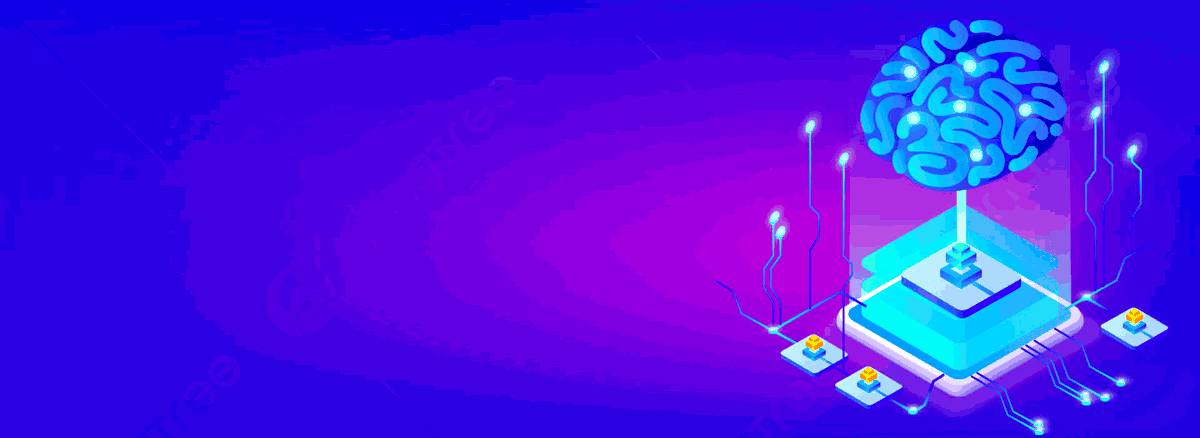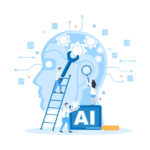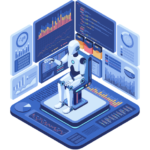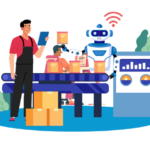 AI Assisted Software Testing revolutionizes quality assurance, offering speed and accuracy in detecting bugs, optimizing test cases, and ensuring software reliability for better user experiences and product stability.
AI Assisted Software Testing revolutionizes quality assurance, offering speed and accuracy in detecting bugs, optimizing test cases, and ensuring software reliability for better user experiences and product stability.
As technology continues to evolve, software testing remains a critical aspect of ensuring software quality assurance. With the emergence of artificial intelligence (AI), software testing has become more accurate, efficient, and reliable.
AI-assisted software testing involves the use of algorithms and machine learning to automate testing processes and identify potential bugs or issues that may be missed by manual testing.
Using AI in software testing has proven to be beneficial in enhancing the overall quality of testing. It can improve test coverage, detect complex patterns, and provide faster and more efficient testing.
Key Takeaways:
- AI-assisted software testing involves the use of algorithms and machine learning to automate testing processes and improve accuracy and efficiency.
- AI can enhance software quality assurance by improving test coverage and detecting complex patterns.
- The implementation of AI in software testing requires a well-defined strategy and continuous monitoring.
Leveraging AI for Efficient Testing
Artificial Intelligence (AI) has revolutionized the field of software testing by introducing AI-powered testing tools that can automate various aspects of testing. These tools help to increase efficiency and accuracy, making testing faster and more effective.
AI algorithms can analyze code and identify potential bugs, allowing for the automation of repetitive test cases and freeing up testers to focus on more complex tasks.
This not only saves time but also improves the quality of testing, as automated tests can be run more frequently than manual tests, detecting issues earlier in the development cycle.
AI-powered testing tools are becoming increasingly popular, with several options available in the market. These tools use machine learning algorithms to learn from past test results and improve future testing iterations, ultimately leading to better software quality.
Leveraging AI for Efficient Testing
One of the most significant benefits of automating software testing with AI is the ability to test more complex scenarios. AI algorithms can detect complex patterns, enhancing test coverage and identifying potential issues that may be missed by manual testing.
However, it is essential to note that AI-assisted software testing is not a replacement for manual testing, but rather a complementary tool. It helps to improve the efficiency and accuracy of testing processes while leaving room for human intervention when necessary.
The use of AI in software testing is rapidly evolving, with new advancements and emerging technologies such as natural language processing and computer vision that can further enhance testing capabilities.
As the industry continues to explore the potential of AI, it is critical to maintain a balance between AI automation and human supervision.
Benefits of AI Assisted Software Testing
The use of Artificial Intelligence (AI) in software testing has many benefits in enhancing the testing process. By leveraging AI in testing, significant improvements can be made in terms of accuracy, speed, and efficiency.
One of the key advantages of using AI in software testing is improving test coverage. AI algorithms are capable of analyzing vast amounts of data and detecting complex patterns that may be missed by manual testing.
This allows for a more comprehensive testing of the software, reducing the risk of potential bugs and errors.
Another benefit of using AI in software testing is the ability to detect potential issues that may not be easily identified by manual testing. The advanced algorithms used in AI-assisted testing can identify patterns that indicate potential issues, allowing for faster and more efficient testing.
AI can also improve the accuracy of software testing. With AI-powered testing tools, developers can automate various aspects of testing, allowing for faster and more accurate results. This reduces the time and resources spent on testing, improving overall efficiency.
The benefits of using AI in software testing include enhanced test coverage, faster and more efficient testing, and improved testing accuracy. AI can significantly improve the quality of software testing, reducing the risk of potential bugs and errors.
AI Algorithms in Software Testing
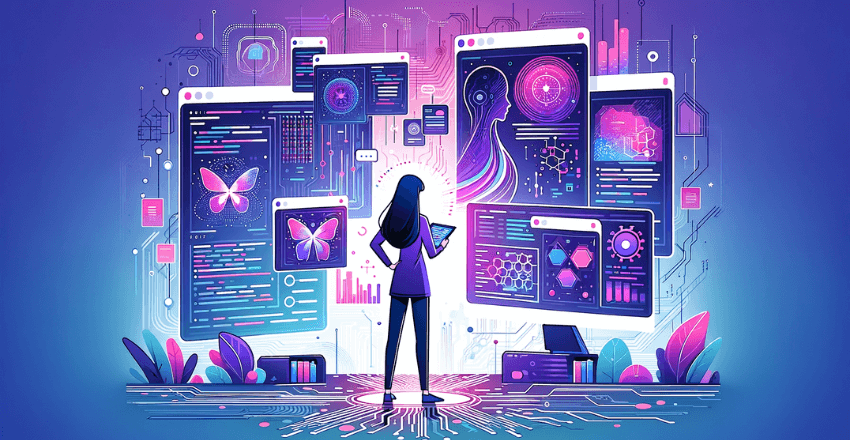
Artificial intelligence algorithms play a crucial role in automating software testing processes. These algorithms use machine learning techniques to analyze code and identify bugs, allowing for faster and more efficient testing. Some of the commonly used AI algorithms for software testing are:
| Algorithm | Functionality |
|---|---|
| Decision Trees | Used to identify the most important features of a software system and to classify new data points accordingly. |
| Random Forest | Uses multiple decision trees to provide a more accurate analysis of software systems. |
| Neural Networks | Used to detect complex patterns in software code and identify potential issues that may be missed by manual testing. |
| Genetic Algorithms | Used to optimize test case selection and test suite minimization. |
AI algorithms learn from past test results and iterations, improving their accuracy over time. They can also identify patterns and correlations that humans may not be able to detect. However, it’s important to note that AI algorithms are not infallible and may generate false positives or false negatives.
Therefore, it’s crucial to maintain a balance between AI automation and human supervision to ensure the accuracy and reliability of testing results.
Challenges and Limitations of AI Assisted Software Testing
While AI-assisted software testing offers numerous benefits, there are also challenges and limitations to consider.
One potential issue is the occurrence of false positives, where the AI algorithm identifies an issue that is not actually a bug. This can lead to wasted time and resources investigating non-existent problems.
Another challenge is the need for domain expertise. AI algorithms may struggle to identify complex issues in specialized fields that require specific knowledge and understanding.
Additionally, there is a risk of over-reliance on AI automation, neglecting the importance of human supervision and intuition. A balance must be struck between the use of AI and the involvement of experienced human testers.
Finally, there is the need for continuous monitoring and improvement of AI algorithms. Machine learning models require constant training and validation to avoid errors or biases.
Implementing AI Assisted Software Testing
Implementing AI-assisted software testing requires proper planning, infrastructure, and expertise. The following steps can be used as practical guidelines:
- Define a clear testing strategy: Before implementing AI in software testing, it is essential to define a clear testing strategy that outlines the testing goals, methodologies, and success criteria. This will help ensure that AI is used effectively to enhance software testing.
- Select the necessary AI tools: Choose the appropriate AI-powered testing tools that meet the specific needs of the testing strategy. There are several testing tools available in the market, such as Appvance IQ, Eggplant AI, and Functionize, among others.
- Ensure proper infrastructure: The successful implementation of AI-assisted software testing requires a robust infrastructure that can handle the computational and storage requirements of AI algorithms. Ensure that the required hardware, software, and networking are in place before deploying AI testing tools.
- Provide necessary expertise: Adequate expertise is required to implement and maintain AI-assisted software testing. Hire or train AI developers who possess the skills and knowledge required to leverage AI algorithms in testing processes.
- Continuous monitoring: As with any software testing process, it is crucial to continuously monitor the AI-assisted testing process and evaluate its effectiveness. Regularly update the testing strategy, tools, and infrastructure to keep up with the evolving needs of the software.
By following these practical steps, organizations can successfully implement AI-assisted software testing and optimize their testing processes to achieve higher quality software products.
Best Practices for AI Assisted Software Testing
Enhancing testing using AI requires careful planning and execution. To ensure success, consider the following best practices:
- Ensure data quality and diversity: High-quality training data is essential for accurate AI models. Ensure your data is diverse and covers a wide range of scenarios to train your AI models effectively.
- Validate and test AI algorithms: Before deploying AI models, ensure they have been thoroughly tested and validated. Conduct both unit and integration testing to ensure they work as intended and do not cause any harm.
- Integrate AI into existing testing processes: To maximize the benefits of AI-assisted testing, integrate AI into your existing testing processes and workflows. Ensure that AI complements and enhances your manual testing efforts rather than replacing them.
- Continuously monitor and optimize AI models: AI models need regular monitoring and optimization to ensure they remain accurate and effective. Continuously monitor your AI models’ performance and update them as necessary to reflect changes in your software and testing needs.
Following these best practices can help you effectively leverage AI in your testing processes and achieve improved accuracy, efficiency, and quality.
The Role of AI Developers in Software Testing
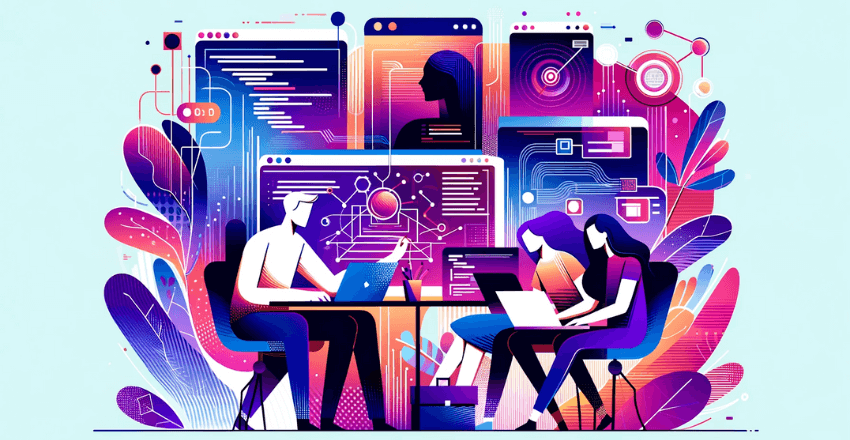
As AI continues to play an increasingly prominent role in software testing, the need for skilled AI developers has never been greater. AI developers are responsible for creating and optimizing AI algorithms that can analyze code, identify bugs, and improve overall testing processes.
Effective AI developers possess a strong background in computer science and programming languages such as Python, Java, and C++. In addition, they must have a thorough understanding of machine learning, natural language processing, and other AI-related technologies. They should also be familiar with common AI-powered testing tools and be able to integrate them seamlessly into existing testing processes.
AI developers must work closely with testing teams to ensure that AI algorithms are properly trained and validated before deployment. They should be able to identify potential issues and provide solutions to improve the accuracy and efficiency of AI-assisted testing processes.
Incorporating AI into software testing requires a multi-disciplinary approach that involves collaboration between AI developers, testing teams, and other stakeholders. By working together, these teams can leverage the full potential of AI to enhance testing and ensure the delivery of high-quality software.
Enhancing testing using AI requires a blend of technical expertise and effective communication skills. AI developers who can effectively communicate the potential benefits of AI to testing teams are more likely to succeed in implementing AI-assisted testing processes.
Benefits of Hiring AI Developers from South America
Implementing AI-assisted software testing requires a team of dedicated and skilled developers. When it comes to hiring AI developers, South America presents an excellent opportunity for companies looking to enhance their testing processes using AI.
Here are some of the benefits of hiring AI developers from South America:
- Strong Talent Pool: South America boasts of a highly skilled pool of AI developers who are well-versed in the latest technologies and tools. These developers possess the necessary knowledge and expertise to design and implement effective AI-assisted testing processes, ensuring that companies get the most out of their software testing efforts.
- Competitive Pricing: Compared to other regions, South America offers competitive pricing for AI developer services. Companies can save significantly on costs while still getting access to top talent and expert services.
- Cultural Compatibility: South America shares many cultural similarities with the United States, making it easier for companies to work with AI developers from the region. Language barriers are also minimal, allowing for smoother communication and collaboration between the development team and company stakeholders.
By hiring AI developers from South America, companies can take advantage of these benefits to enhance their testing processes using AI.
This region provides a cost-effective and efficient solution for acquiring top-tier AI development services.
Conclusion
AI-assisted software testing has significant benefits for improving the accuracy, speed, and efficiency of testing processes. Using AI for software quality assurance can lead to improved test coverage and detection of complex patterns. However, there are challenges and limitations to consider, such as false positives and the need for human intervention.
It is important for companies to maintain a balance between AI automation and human supervision.
Implementing AI-assisted software testing requires the necessary infrastructure, tools, and expertise, as well as a well-defined testing strategy and continuous monitoring.
Best practices include ensuring data quality and diversity for training AI models and thoroughly validating and testing AI algorithms before deployment.
The future of AI-assisted software testing looks promising, with emerging technologies such as natural language processing and computer vision further enhancing testing capabilities. AI developers play a crucial role in implementing and optimizing AI-assisted testing, and companies may benefit from hiring AI developers from South America for their projects.
Overall, the potential benefits of AI in software testing cannot be overlooked, and companies should explore its potential to enhance their testing processes.
External Resources
FAQ
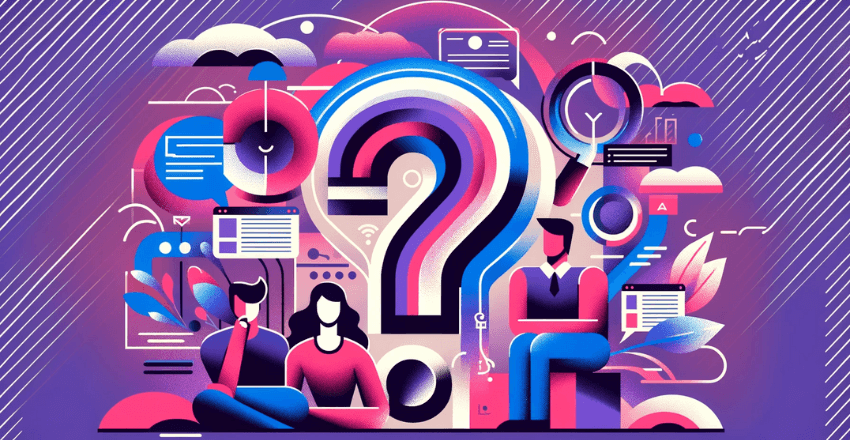
Q: What is AI Assisted Software Testing?
A: AI Assisted Software Testing refers to the use of artificial intelligence in the software testing process. It involves utilizing AI algorithms and tools to automate various aspects of testing, improve accuracy, speed, and efficiency, and enhance the overall quality of software testing.
Q: How can AI enhance software testing?
A: AI can enhance software testing by automating repetitive tasks, analyzing code to identify potential bugs, improving test coverage, detecting complex patterns, and identifying potential issues that may be missed by manual testing. It can also learn from past test results and improve future testing iterations.
Q: What are the benefits of using AI in software testing?
A: Using AI in software testing can improve accuracy, speed, and efficiency. It can also enhance test coverage, detect complex patterns, and identify potential issues that may be missed by manual testing. Overall, AI can enhance the quality of software testing and help organizations deliver better software products.
Q: What are some AI algorithms commonly used in software testing?
A: Some common AI algorithms used in software testing include machine learning algorithms, natural language processing algorithms, and computer vision algorithms. These algorithms can analyze data, learn patterns, and make predictions or classifications, which can be highly beneficial in automating testing processes.
Q: What are the challenges and limitations of AI-assisted software testing?
A: AI-assisted software testing has some challenges and limitations. These include potential false positives, limited domain expertise of AI systems, and the need for human intervention and supervision. It is important to strike a balance between AI automation and human involvement in the testing process.
Q: How can AI-assisted software testing be implemented?
A: Implementing AI-assisted software testing requires the necessary infrastructure, tools, and expertise. It is important to have a well-defined testing strategy and continuous monitoring. Organizations should also invest in training and upskilling their teams to effectively leverage AI in testing processes.
Q: What are the best practices for AI-assisted software testing?
A: Best practices for AI-assisted software testing include ensuring data quality and diversity for training AI models, thoroughly validating and testing AI algorithms before deployment, and integrating AI into existing testing processes. Collaboration between AI developers and testing teams is also crucial for success.
Q: What is the role of AI developers in software testing?
A: AI developers play a crucial role in implementing and optimizing AI-assisted software testing. They are responsible for developing and fine-tuning AI algorithms, integrating them into the testing process, and ensuring their effectiveness. Collaboration between AI developers and testing teams is essential for successful implementation.
Q: What are the benefits of hiring AI developers from South America?
A: Hiring AI developers from South America offers several advantages for AI-assisted software testing projects. The region has a strong talent pool in AI and software development, competitive pricing compared to other regions, and cultural compatibility with Western organizations. Many companies have benefited from hiring AI developers from South America.
Benjamin Bale is a distinguished expert in the field of AI development and an esteemed author for the “Hire AI Developer” blog. With a remarkable decade-long experience in the industry, Benjamin has cemented his reputation as a leading authority in AI app and website development, as well as AI backend integrations. His profound passion for AI and its transformative potential is evident in every aspect of his work.
Benjamin’s journey into the world of AI began at Edinburgh University, where he pursued his studies in AI and Mathematics. It was during this time that he cultivated a deep understanding and fascination for the subject. Throughout his career, Benjamin has accumulated extensive experience working with industry giants such as Goldman Sachs, Tencent, and Ali Express. These invaluable experiences have not only sharpened his skills in integrating existing systems with AI APIs but have also solidified his status as a consummate professional in the field.
Currently residing in the vibrant city of London, Benjamin finds solace in his role as both an author and developer. Beyond his professional endeavors, he takes great joy in the company of his faithful canine companion, Chad, and indulges his passion for snowboarding in the picturesque mountains of France. Benjamin’s unwavering dedication to advancing AI technology, combined with his wealth of knowledge and practical expertise, make him an invaluable asset to the “Hire AI Developer” team and an invaluable resource for readers seeking profound insights into the realm of AI.

